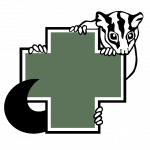[vc_row][vc_column width=”1/3″][vc_column_text]Our Disaster Relief Team[/vc_column_text][vc_single_image image=”1749″ img_size=”medium”][/vc_column][vc_column width=”1/3″][vc_column_text]Koala burnt in bushfire[/vc_column_text][vc_single_image image=”1875″ img_size=”medium”][/vc_column][vc_column width=”1/3″][vc_column_text]Oil covered pelicans[/vc_column_text][vc_single_image image=”2724″ img_size=”medium”][/vc_column][/vc_row][vc_row][vc_column][vc_column_text]
Disaster Search & Rescue
The Hunter Wildlife Rescue (NATF) Disaster Relief Team operates search and rescue of distressed and injured wildlife after natural and man-made disasters including bushfires, storms and floods, oil spills or heat stress events.
Members will be alerted to a potential natural disaster and to be on standby. Activation of the Hunter Wildlife Rescue (registered as NATF) Disaster Search and Rescue Unit in in line with Department of Primary Industries (DPI) Emergency Animal Service Plan. The Disaster Relief Team works alongside DPII; State Emergency Services (SES); Rural Fire Services (RFS); National Parks & Wildlife Service (NPWS); Volunteer Rescue Association (VRA); Energy Australia; Local Councils; Rangers.
When DPI informs the Disaster Coordinator that the area is safe, the Disaster Communications Officer will call for volunteers from the membership to participate wildlife disaster relief including:
1. Field search and rescue
2. Transportation of injured wildlife to vets and approved rehabilitators
3. Allied support ie general assistance setting up base; picking up water and food supplies; making lunches for search and rescue volunteers and delivering to field base.
4. Administration support and donation coordination.
[/vc_column_text][/vc_column][/vc_row][vc_row][vc_column][vc_column_text]
What is the Impact on Our Wildlife of Natural & Man Made Disasters?
A major aspect of Hunter Wildlife Rescue support for wildlife is assisting wildlife after natural and man-made disasters.
- Bushfires take a toll on our wildlife that cannot flee – koalas and possums are usually the hardest hit;
- Storms and floods impact on our ground dwelling reptiles, wombats and echidnas;
- Heat-stress events can see major devastation to the threatened grey-headed flying foxes and wombats; and
- Other disasters such as oil-spills affect sea and shore birds, in particular pelicans.
Find out more about the impact on wildlife from:
- Bushfires
- Storms and Floods
- Heat Stress Events
- Oil Spill
[/vc_column_text][/vc_column][/vc_row][vc_row][vc_column][vc_column_text]
Donations for Wildlife Rescued from Natural Disasters
Donations, monetary and in-kind, are needed in order to oversee further Search & Rescue operations of any future bush fires or other disasters. In-kind donations can include towels, sheets, socks, obsolete cages or aviaries.
Tax deductible donations to support the work of Disaster Relief can be sent to:
The Secretary
Hunter Wildlife Rescue
PO Box 17
Shortland NSW 2307[/vc_column_text][/vc_column][/vc_row]
